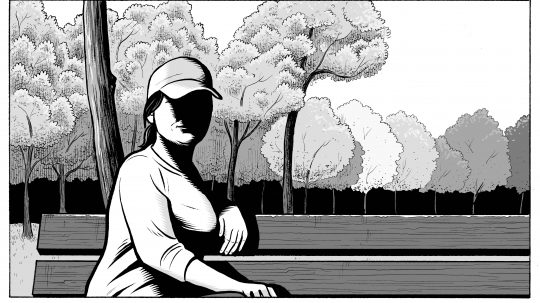Corporal punishment includes violence against children through any form of ‘physical force’ that is used to inflict pain. As well as causing harm and discomfort, the perpetration of any form of violence against children represents a violation of their rights.
This includes infringement of a child’s right to integrity of the person under the European Union Charter of Fundamental Rights. Whilst this EU Charter no longer applies in the UK, following Brexit, the government has stated that this ‘should not affect the substantive rights that individuals already benefit from in the UK, as the Charter was never the source of those rights’.
While the physical punishment of children is prohibited in all settings in Scotland and Wales, in England and Northern Ireland corporal punishment remains legal in some care and daycare environments.
The Council of Europe stated: “Corporal punishment conveys the wrong message to children and can cause serious physical and psychological harm to a child. Corporal punishment, if directed at an adult, would constitute criminal assault. One of the most basic human rights principles is the right to live free from the threat of violence. Article 19 of the United Nations Convention on the Rights of the Child (UNCRC) guarantees this right to every child and obliges States Parties to take appropriate measures to protect the child from all forms of violence.”
The landmark case
In 1982, two Scottish parents, Grace Campbell and Jane Cosans, made reports to the European Court of Human Rights about the use of corporal punishment. Both mums had children who attended state schools in Scotland, where staff were allowed at the time to hit pupils with a leather strap as a form of discipline.
Cosans’ son, Jeffrey, who was 15, was suspended for refusing to accept corporal punishment after he had taken a shortcut through a cemetery. As a result, he was suspended from his school and didn’t return. Meanwhile, Campbell had asked her local council for a guarantee that corporal punishment would not be used against her seven-year-old son, but they refused.
Credit: The Council Of Europe, Vimeo
It would be considered a landmark case four years later, when the government introduced the Education Act (1986) which abolished corporal punishment in state schools. The law entered into force the following year.
As a result of their complaint to the European Court of Human Rights, Campbell and Cosans received money towards their legal fees. Cosans, whose son was suspended, also received £3,000 in damages. The judgment passed by the European Court of Human Rights stated that the government’s intention to phase out corporal punishment gradually wasn’t good enough:
“The duty to respect parental convictions in this sphere cannot be overridden by the alleged necessity of striking a balance between the conflicting views involved, nor is the government’s policy to move gradually towards the abolition of corporal punishment in itself sufficient.”
Is the law enough?
While corporal punishment in the home was prohibited in Scotland in 2019 and in Wales in 2020, it remains legal in England and Northern Ireland. In England, Section 58 of the Children Act (2004) provides for “reasonable punishment” of children. Similarly, in Northern Ireland, Article 2 of The Law Reform (Miscellaneous Provisions) (Northern Ireland) Order (2006) allows “reasonable punishment”.
According to The Council of Europe, making corporal punishment illegal is not enough and the public must enforce it to protect the rights of children. The Council of Europe stated:
“Prohibition in law is essential, but alone it is not enough to guarantee children’s human rights. Professionals working with children, parents, children themselves and the public at large need to be informed of the law and of children’s right to protection. Governments should therefore provide a range of policy measures to support the law’s implementation”.
The Council of Europe recommended that one way of ensuring the end of corporal punishment is through raising awareness and shifting attitudes to physical punishment in the UK:
“The laws need also to be accompanied with extensive awareness-raising actions which will challenge existing social acceptance of adults hitting children and inflicting other humiliating treatment on them as ‘reasonable punishment and correction of children’.”
In a written statement issued in 2020, the government stated that it does not plan to make physical punishment illegal for parents. Michelle Donelan, Minister of State at the Department for Education said:
“The government has no plans to bring forward legislative proposals to ban parents from using physical punishment to chastise their child”.
“The government does not wish to interfere in how loving families bring up their children. Legislation already exists to ban the beating of children by their parents; the defence of reasonable chastisement can only be used when a parent is accused of assault and not when the charge is actual bodily harm, grievous bodily harm or child cruelty.”






